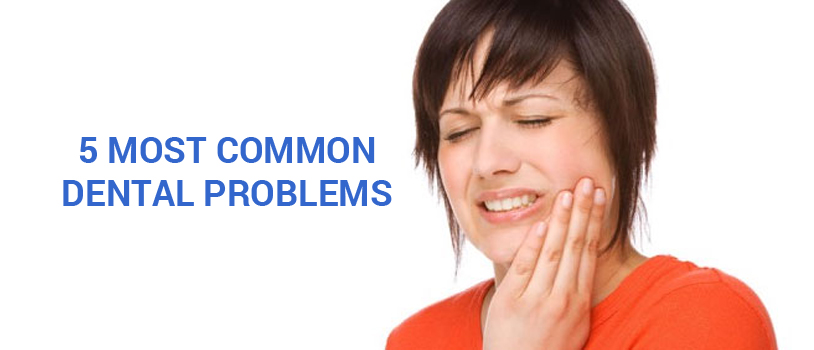This is the continuation of 5 Most Common Dental Problems/ Diseases, from the blog of the best Dental Implant clinic in Delhi.
Tooth Infection/ Abscessed Tooth/ Root Infection:
As the name of the condition suggests, root infection is the infection of the root, i.e. the lower portion of the tooth, embedded in jaw bones and covered by gums. This root gets infected by bacteria, leading to dental pulp getting damaged. In some cases, the root canal (Yeah, that’s where the treatment name, ‘root canal therapy’ comes from.) This may be because of tooth decay/ dental cavities/ dental caries or injury.
The symptoms of tooth abscess include a severe and throbbing toothache. The pain is so intense that sometimes even painkillers don’t offer relief.
Enamel Erosion/ Tooth Erosion:
As we have explained many a time in the past, the enamel is the tough, protective tissue that forms the outer layer of the tooth. Enamel erosion, the loss of this layer, chiefly from the exposure to acid, from soft drinks/ sodas, sports drinks, wine, is a very common problem.
The tooth surfaces become discolored. (Faded/ yellowish) Teeth sensitivity and cracking in the more severe cases are also the symptoms.
Checkout Our Other Treatments:
- Teeth whitening cost in Delhi
- Tooth implant cost
- Invisalign in Delhi
- Single Sitting RCT
- Smile makeover cost in India
FAQ's
Absolutely! While gum disease is a serious condition, there are many steps you can take to get your gums healthy again. The most important things to do are brush your teeth twice a day with a fluoride toothpaste, floss every day, and schedule regular dental exams. Your dentist may also recommend additional treatments such as deep cleaning to help heal the gum disease. Taking these steps now can help keep your gums healthy in the long term.
The main cause of gum disease is plaque build-up. Plaque is a sticky substance that forms on the surface of your teeth and gums and can contain bacteria that irritate and damage the soft tissues in and around your teeth, causing inflammation and pain. The best way to prevent gum disease is by maintaining proper oral hygiene, such as brushing twice a day and flossing once daily. Regular dental checkups are also important to ensure that any signs of gum disease are spotted early, so they can be treated quickly before further damage occurs.
The two early signs of gum disease are red, puffy or swollen gums and bleeding when brushing or flossing. If you notice either symptom, then it is important to visit your dentist for a thorough examination. With early diagnosis and treatment, you can prevent the progression of gum disease and save your teeth from possible damage.
The four stages of gum disease are gingivitis, early periodontitis, moderate periodontitis, and advanced periodontitis. Gingivitis is the earliest stage and is caused by a buildup of bacteria in the gums which leads to inflammation. Early periodontitis is when the plaque spreads below the gum line causing pockets and bone loss. Moderate periodontitis is when deeper pockets form and continuing bone loss occurs. Advanced Periodontitis is when deep pockets remain untreated leading to further bone loss and eventual tooth loss.

